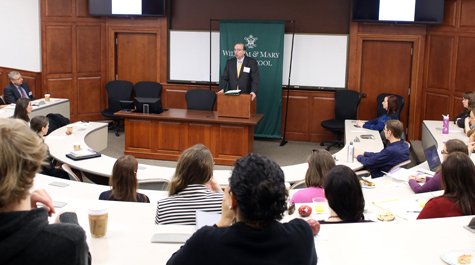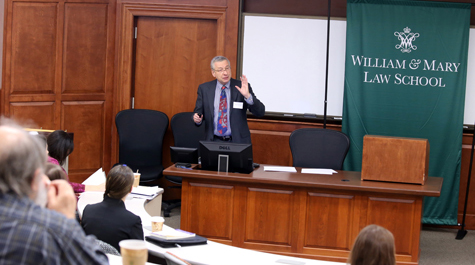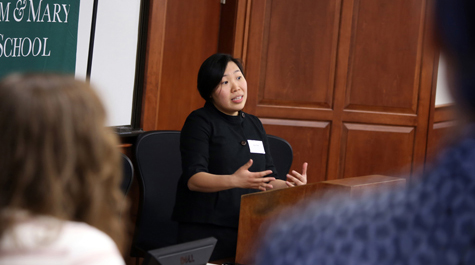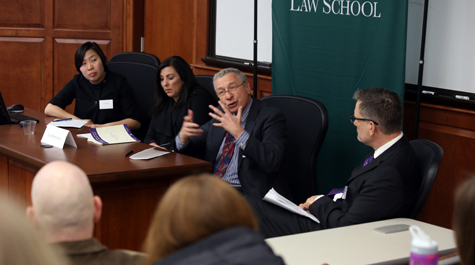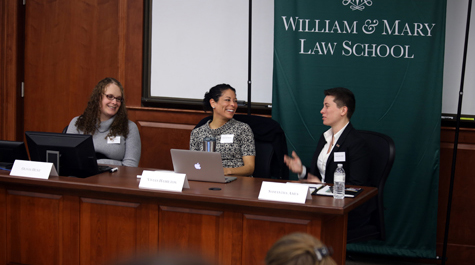Leading Scholars Share Views at Symposium on Advancing LGBTQIA Rights in a Post-Obergefell World
William & Mary Law School hosted the “Advancing LGBTQIA Rights in a Post-Obergefell World” Symposium on Friday, Feb. 26.
The event featured presentations and panels by leading figures in human rights, exploring the legal pushback from the 2015 Obergefell decision, which extended the right to marry to same-sex couples in all states, and how the law and legislature should address gaps created by the ruling.
“We have a terrific group of legal scholars and advocates who will be speaking about, and have written about, these topics,” said Dean Davison M. Douglas during introductory remarks.
The symposium was presented by the William & Mary Journal of Women and the Law. The journal was established in 1993 to provide a forum for scholarly debate on gender-related legal issues.
Noting this was the 21st Journal of Women and the Law symposium, Editor-in-Chief Shana Oppenheim said, “It’s important to talk about and educate ourselves about the process. It’s an opportunity to understand how politics and the law interplay.”
The annual symposium explores prominent topics in women’s law. With the Obergefell decision, Oppenheim said the focus on LGBTQIA Rights was “topical and relevant.”
Dean Douglas agreed. “We're all familiar with what the Supreme Court did last summer with respect to same-sex marriage issues--a very important landmark decision, but there are a lot of questions that have been left open and these are the questions that we will address today.”
The symposium included presenters Samantha Ames, a staff attorney at the National Center for Lesbian Rights; Lisa Bornstein, Legal Director and Senior Legal Advisor at the Leadership Conference on Civil and Human Rights and Leadership Conference Education Fund; Joy Chia, a program officer with the East Asia Program at the Open Society Foundations; Olivia Hunt, an Equal Justice Works AmeriCorps Legal Fellow at Whitman-Walker Health in Washington, D.C; and Mark Strasser, a Trustees Professor of Law at Capital University Law School.
The symposium featured active student participation, including lively discussion on balancing religious freedoms and LGBTQIA rights, the judiciary’s role in educating the community and shaping societal norms, and whether amendments to existing legislation or the creation of a stand-alone act would be the best measure for protecting rights.
“The panelists brought up an important point about how in discussion the law and policy for LGBTQIA rights necessitates a discussion about intersectionality,” said law student Renuka Santhanagopalan J.D. ’18. “The panelists talked about how, when we decide how to pass certain laws (expanding on the existing Civil Rights Act or create new and separate legislation), we need to make sure that we're considering how different protected classes are inherently intertwined so that you are inclusive of disabled, gay, and trans POC, for example.”
Mary Zeoli J.D. ’18 said, “I think it’s great that we have these symposiums because it attracts experts that we normally don’t have contact with and submerges us in a topic that we are really interested in for an entire day.”
About William & Mary Law School
Thomas Jefferson founded William & Mary Law School in 1779 to train leaders for the new nation. Now in its third century, America's oldest law school continues its historic mission of educating citizen lawyers who are prepared both to lead and to serve.
